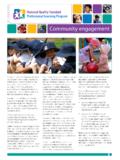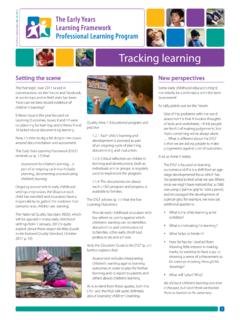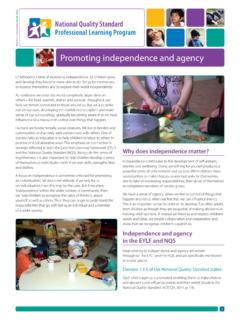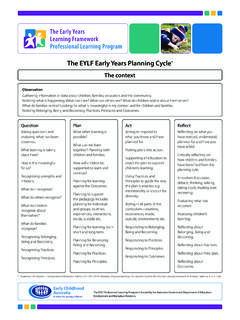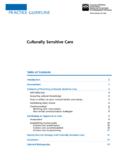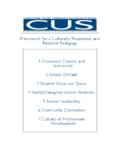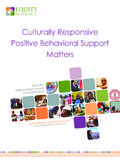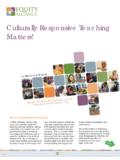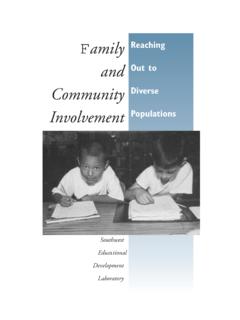Transcription of Becoming culturally competent—Ideas that …
1 1 NQS PLP e-Newsletter 2013 Becoming culturally competent Ideas that support practice Cultural competence requires that organisations have a defined set of values and principles, and demonstrate behaviours, attitudes, policies and structures that enable them to work effectively cross- culturally . (National Centre for Cultural Competence, 2006) Becoming culturally competent is about building respectful relationships. It occurs over time, by our connection with others and through our daily experiences with children and families in local communities. It is as much about what we do every day, the little decisions we make and the words we use, as it is about what we think, what we understand and what we believe.
2 Even though it is multilayered, interconnected and at times very complex, it is one of the most important ways we can ensure that Australia remains a place of peace with justice for its about and putting the ideas of cultural competency into practice can seem like a daunting task. This e-newsletter aims to explain what we now understand about being culturally competent , to suggest some practical ways to take action and to remind us about what is expected of contemporary professionals in early childhood what exactly is cultural competence and why should we do it?
3 Cultural competence is a term that is used widely to describe the ways in which individuals and services work more effectively to support, promote and embrace cultural difference. In dealing with these ideas, we join with our colleagues in health and social work for example, who have been using the terms for many years, to better understand and respond to cultural diversity and thereby provide better and more inclusive services to the culturally competent is a clear expectation of the National Quality Framework (NQF) and features strongly in the Early Years Learning Framework (EYLF) and the National Quality Standard (NQS).
4 It is something for all of us to consider in our practice with children and their families irrespective of where we are in Australia or the range of diversity present in the communities we are part guiding principles of the NQF are explicit and require services to attend to diversity as a matter of principle, policy and action: The rights and best interests of the child are paramount. Children are successful, competent and capable learners. Equity, inclusion and diversity underpin the Framework. Australia s Aboriginal and Torres Strait Islander cultures are valued.
5 The role of parents and families is respected and supported. Best practice is expected in the provision of education and care were never in the world two opinions alike, any more than two hairs or two grains. Their most universal quality is De Montaigne, 1533 15922 The EYLF defines cultural competence as the ability to understand, communicate with, and effectively interact with people across cultures and explains that cultural competence is our capacity to: be aware of our own world view develop positive attitudes towards cultural differences gain knowledge of different cultural practices and world views develop skills for communication and interaction across we practise these capacities over time, they become stronger and more embedded in our everyday thinking and acting.
6 It is about continually improving and learning, through reflection, from our successes and mistakes. Cultural competence is a big idea; it s bigger than ethnicity, more than celebrations, larger than food it s about all that we are, what shapes our beliefs and how we understand the world. For example, my cultural background is more than my Anglo Irish heritage. It is also about my Grandmother s (and I assume her mother s before her) beliefs in manners and punctuality. These beliefs were a feature of my childhood and shape the person I am today. It is something that I grappled with when I worked in a community that viewed time as much more flexible and relaxed than my grandmother s strict way of life.
7 My growing cultural competence invites me to be aware of my own background and how it affects my relationships with children and their families and the decisions I make. Educators who are culturally competent respect multiple cultural ways of knowing, seeing and living, celebrate the benefits of diversity and have an ability to understand and honour differences. (Department of Education, Employment and Workplace Relations [DEEWR], 2009, p. 16)Cultural competence also includes our efforts to value and build connections with Aboriginal and Torres Strait Islander Peoples.
8 Programs that highlight and share Australia s rich Indigenous culture with all children contribute to the work of Reconciliation and support the rights of all citizens to be valued. But perhaps the most important reason to pay attention to cultural competence is that, by knowing more about and respecting our varied cultural ways of being, we create children s services that welcome everyone, build a sense of belonging for all, and equip all children to live well with diversity. When we take action to make these ideas true and real for everyone, we assist children to learn and grow in the five learning outcomes of the EYLF and become active citizens now and into the future.
9 In 1991, Anne Stonehouse invited us to consider cultural competence from a very practical perspective .. Today s children will work with, go to school with, be friends with, live next door to, form permanent relationships with people from cultures different from their own. (Stonehouse, 1991)This quote remains true, more than 20 years later, and provides a powerful rationale for cultural on with cultural competencyTaking practical steps towards cultural competency doesn t have to be complicated. It s best to start locally and with the children and families that you know well.
10 As we learn more and become increasingly confident we can stretch our competency further. The following ideas come from a range of service types in various communities across Australia. As you read them, reflect on whether these ideas might be something to try in your service. Understanding ourselves ..Knowing about our own cultural identity is an important first step in the process of Becoming culturally competent . When we understand the beliefs and values that are important to us and the way that our own cultural background has shaped our own life we become more able to acknowledge how these factors impact on small rural service decided to start talking about cultural competency by updating the information they shared with families throughout the centre.



